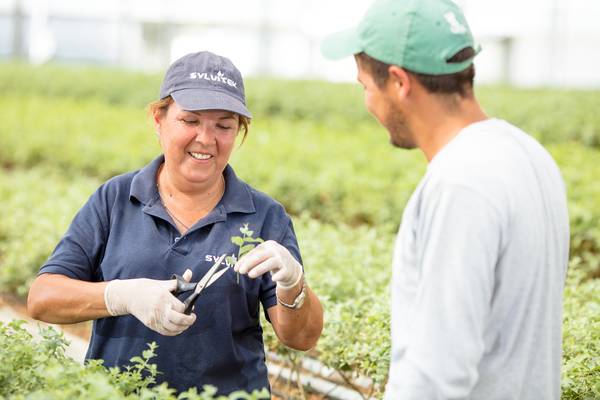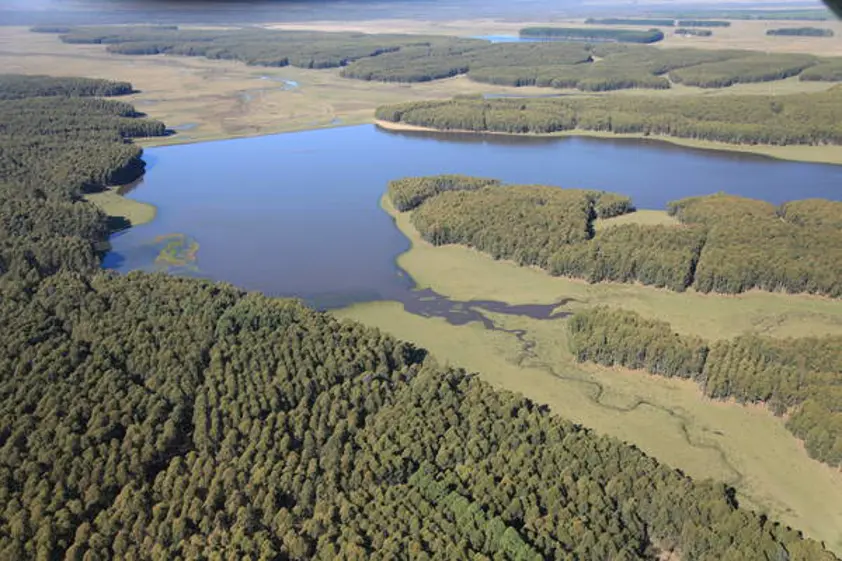Sustainably managed eucalyptus plantations are an ecological and efficient way to produce wood raw material to meet the globally increasing need for wood-based products.
“Eucalyptus trees grow fast and seedlings will provide wood within 10 to 12 years. These trees adapt easily in different climates and soils, and they are very efficient users of nutrients and water,” says Ricardo Methol, Manager, Technical Development and Planning, UPM Forestal Oriental.
“Globally plantations cover around 7% of the forest area, but they are supplying more than 33% of commercial wood raw material used by various industries,” says Methol.
Trees augment the infiltration capacity of the soil that is very important to sustain base water flow for a longer period after rainfall.
“We have executed several studies on plantations and water together with universities and independent researchers. According to these studies, while eucalyptus plantations can reduce the superficial water runoff in comparison to grasslands, they do not affect the ground water levels or their recharge. Diminished surface runoff reduces erosion and nutrients reaching water courses,” explains Methol.
UPM manages around 250,000 hectares of land, of which roughly 60% is planted with eucalyptus. The rest of the land area consists of unplanted grassland, infrastructure and protected valuable sites such as native forests. On 60% of the total land area, eucalyptus cultivation is combined with cattle grazing. All UPM plantations are certified to both FSC® and PEFC™ forest standards.
The plantations provide wood to UPM’s Fray Bentos pulp mill in south-western Uruguay. Currently UPM is planning to invest EUR 2 billion in a new mill to be located near the city of Paso de los Toros in the centre of the country. A final investment decision is expected to be taken in 2019.
“We have established a solid raw material base that goes beyond our existing pulp production capacity in Fray Bentos,” Methol says.
From seedlings to trees
Forestry has created important employment and entrepreneur opportunities in rural areas. All planting and logistics operations are done by external contractors. In the case of harvesting, approximately one third is done by the company and two thirds by contractors.
The forestry value chain employs some 3,000 people directly. Forestry involves a higher proportion of female workers than traditional agricultural activities as in the forest nurseries around 50% of the workers are women.
Eucalyptus seedlings are produced in nurseries mainly through traditional vegetative reproduction based on cuttings similarly like in the production of pot plants. UPM has two nurseries to provide seedlings for plantations.
“We have a genetic improvement programme based on traditional breeding technics to enhance wood yield and fibre quality. Beside this, we ensure that trees adapt to different forestry sites and climate conditions. This programme also increases the uniformity of the logs, which augments efficiency in harvesting and logistics operations,” explains Methol.

To maximise genetic benefits, the best trees from each species are selected and controlled crossing is carried out. In the micropropagation laboratory, trees are multiplied using the vegetative propagation process, with a view to achieving mother plants from new clones.
“The method is very common and traditional in agriculture. Over the past 25 years we have significantly improved the seedling material that we use in our plantations and also in those of private farmers under partnership agreements with UPM. Mainly we are growing Eucalyptus grandis and E. dunnii but we have also developed hybrids between different species.”
The growth and quality of plantations is monitored closely. When the plantations are approximately one year old, he says, UPM undertakes an aerial survey with drones to count the number of trees per hectare.
Methol adds that UPM only uses fertilisers approved by the FSC and PEFC certificates.
“Fertilisers have the same minerals that are present in the soil. We use slow release fertilisers that are put underneath seedlings at the time of planting. This ensures that trees use nutrients very efficiently so there is no risk that the added nutrients would end up in water streams.”
“In our field work we have been incorporating mechanisation efficiently by combining two or three activities in one tractor operation. Thanks to continuous improvements we have better plantations with less interventions in a shorter period of time. This strategy has also helped us to keep costs under control.”
It’s harvesting time
Trees are harvested when they are around 10 years old. In the mechanised harvesting operations field workers are using machinery that cuts, trims, debarks and slices the tree. Then trunks are stacked and left at the side of the road for transport.
Some 300 vehicles operated by several external contractors transport wood for the UPM Fray Bentos pulp mill.
“The target is to conserve the quality of internal and provincial gravel roads during rainy days or even after the rain. We have various log yards located by asphalt roads to ensure that we can continue using the fleet even during rainy days without getting onto gravel roads,” says Methol.
A centralised planning of wood transportation seeks to optimise the wood transport, thus minimising the number of trucks required and fuel consumption in the whole operation.
Safety first in all operations
To improve road safety in wood logistics, UPM provides constant training and has incorporated a scoring system that has decreased incidents of speeding. A GPS control system is used to monitor the routes and distances as well as the speed of trucks.
“If drivers are exceeding the speed limits or they are caught causing dangerous situations, they will start losing their scoring points. If a truck reaches a certain level of scores, it has to have a day off as a penalty,” explains Methol.
The system has boosted safety on the roads. Cases of speeding have decreased by 90% and drivers and truck companies are more focused to comply with UPM’s standards. Accident rates for the wood transport are among the lowest worldwide.

